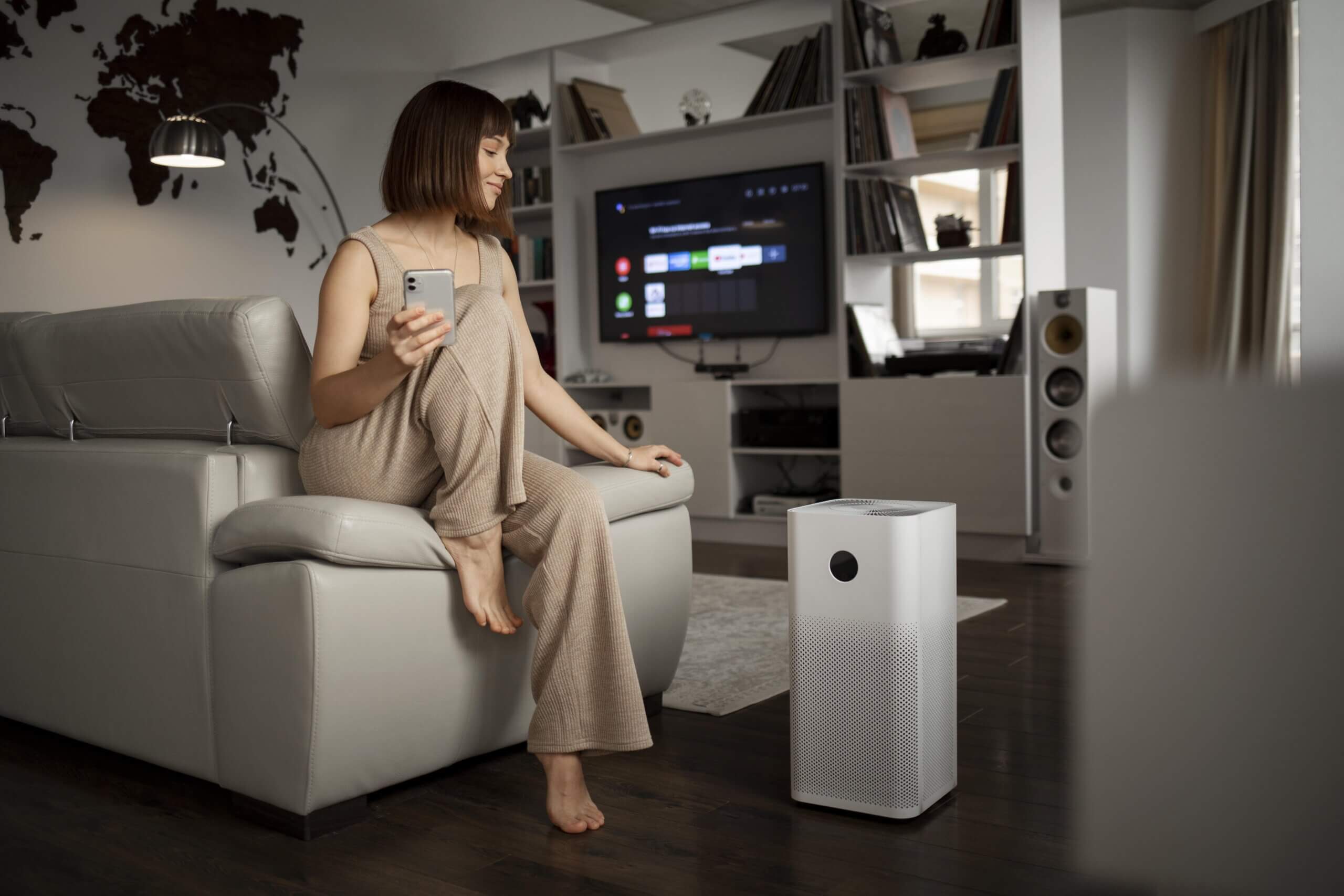Air purifiers have become an increasingly popular way to handle airborne contaminants. In an era of rising environmental issues and more awareness about indoor air quality, the air purifiers are getting more attention. By removing impurities and allergens, these gadgets attempt to enhance the quality of the air we breathe. In this post, we’ll delve into the realm of air purifiers and examine their workings, varieties, advantages, and general efficacy.
Understanding Air Purifiers:
An air purifier is a device for removing allergens, pollutants, and other airborne particles from enclosed environments. From dust, pet fur, pollen, and mold spores to more dangerous pollutants like smoke, volatile organic compounds (VOCs), and even specific bacteria and viruses, these particles can cause a variety of health problems.
Technology and Working of Air Purifiers: Air purifiers use various mechanisms to clean the air like
- Filtration: The most common method involves a physical filter, such as High Efficiency Particulate Air (HEPA) filters, which capture particles as air passes through.
- Activated Carbon: This type of filter is effective at adsorbing odors, VOCs, and some chemical pollutants.
- Ultraviolet (UV) Germicidal Irradiation: UV-C light can destroy microorganisms like bacteria and viruses.
- Ionic and Electrostatic Purification: These devices release charged particles that attract and remove airborne particles.
- Ozone Generators: These emit ozone, which reacts with pollutants; however, they are controversial due to potential health risks.
Benefits of Air Purifiers:
Air purifiers offer several benefits to indoor environments:
- Improved Air Quality: By reducing allergens, pollutants, and contaminants, air purifiers help create cleaner and healthier air.
- Allergy and Asthma Relief: Those with allergies or respiratory conditions often experience relief from symptoms in cleaner air.
- Odor Reduction: Air purifiers with activated carbon filters help eliminate unpleasant odors.
- Virus and Bacteria Control: UV-C purifiers can help reduce the spread of airborne viruses and bacteria.
Efficacy and Considerations:
Although they have several advantages, air purifiers’ effectiveness varies according to the model, the specific pollutants present, the size of the room, and the Clean Air Delivery Rate (CADR) of the unit. Air purifiers function best when used in conjunction with adequate ventilation techniques and cleanliness, but they may not be a perfect solution for all air quality problems. Before purchasing a new device, please consult with company technicians or experts.
By lowering allergies, pollutants, and toxins, air purifiers significantly improve the quality of the air around buildings. Their efficacy varies depending on elements including the kind of purifier used and the specific pollutants present. It’s critical to select the best air purifier for your needs, maintain the machine properly, and combine the use of air purifiers with other indoor air quality measures to get the most out of them. Keep in mind that talking to professionals and reading product reviews can help you decide which air purifier is ideal for your environment.
